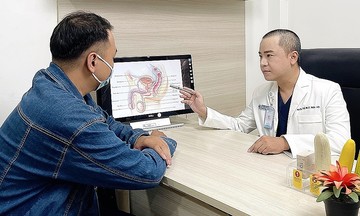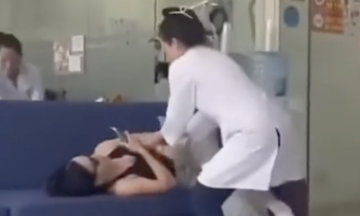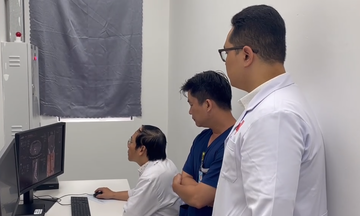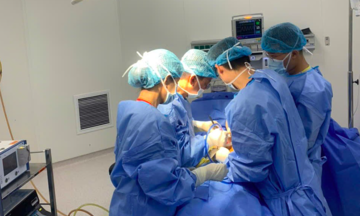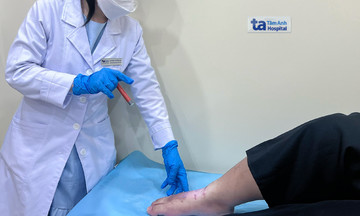Quang, who has a child with his former wife, suffered a workplace accident at 21 that fractured his pelvis, bladder, and rectum, ruptured his urethra, and severely damaged the soft tissue in his right thigh. He underwent eight surgeries to reconstruct his excretory organs and other affected areas.
However, the severe trauma caused one testicle to atrophy, and the ruptured urethra resulted in a shortened penis and an inability to achieve an erection or ejaculate. "I was fortunate to survive and heal physically, but some parts of me will never be the same," Quang said.
After remarrying, Quang sought treatment at the Center for Reproductive Assistance, Tam Anh General Hospital - District 8, to have another child. Doctor Nguyen Cong Minh diagnosed him with severe non-obstructive azoospermia due to multiple structural, functional, and neurological injuries.
Doctor Minh explained that the pelvic fracture had crushed the soft tissue in Quang’s genital area, damaging the blood vessels that supply the testicles. The lack of blood supply caused testicular atrophy, reducing their ability to produce sperm and male sex hormones.
The spinal cord injury and pelvic fracture also severely damaged the nerve plexus and blood vessels in the pelvic floor, which are responsible for erections, making intercourse impossible. "The patient faced three problems: sperm production failure, sperm transport failure, and intercourse failure, preventing natural conception," the doctor concluded, adding that the remaining testicle also had impaired sperm production.
Quang underwent micro-TESE (microdissection testicular sperm extraction). Using a microscope with 30x magnification, the doctor directly observed and selected seminiferous tubules likely to contain sperm. These were extracted and transferred to the lab. There, embryologists used an inverted microscope with 200x magnification to find nearly 30 sperm, enough for one IVF cycle.
The sperm were combined with eggs retrieved from Quang's wife to create embryos. The doctors obtained four day-5 embryos and one day-6 embryo. She is scheduled for embryo transfer soon.
After infertility treatment, Quang can have surgery to implant a penile prosthesis to restore erectile function and enable sexual intercourse.
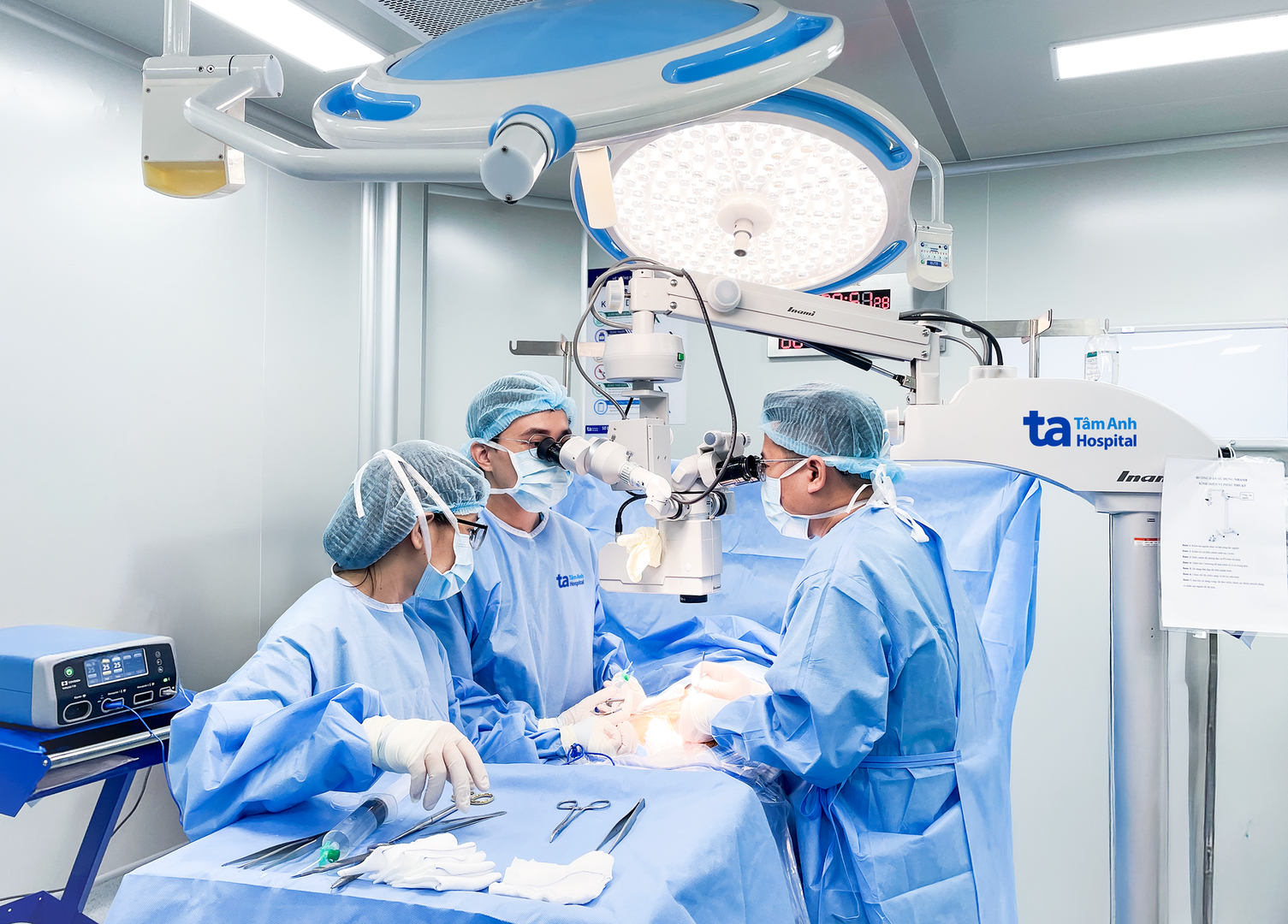 |
Doctor Minh (center) performs micro-TESE on Quang. Photo: *Tam Anh General Hospital* |
Tam Anh IVF Center has treated many cases of male infertility caused by trauma. Some patients experienced genital injuries years earlier, even in childhood, but were unaware or asymptomatic, with the condition progressing silently and only discovered when they reached adulthood.
Previous major surgeries, especially abdominal or pelvic procedures, can inadvertently damage nerves or blood vessels related to reproductive function. The use of strong painkillers, anesthetics, and prolonged bed rest can also affect sperm quality.
Doctor Minh advises men with traumatic injuries to prioritize their overall health recovery and then consult a specialist in andrology or reproductive assistance. Doctors may recommend tests like a semen analysis to evaluate sperm count, quality, and motility, along with hormone tests and a scrotal Doppler ultrasound to check the structure and blood vessels, helping assess testicular function. Depending on the case, patients may undergo surgery to repair injuries, reconnect the vas deferens, or reconstruct damaged structures. Supportive treatments include medication, hormone therapy, and assisted reproductive technologies.
Patients facing major pelvic surgery or treatments with a high risk of infertility should consider sperm cryopreservation beforehand to preserve their future ability to father children.
Dinh Lam
*The patient's name has been changed.




